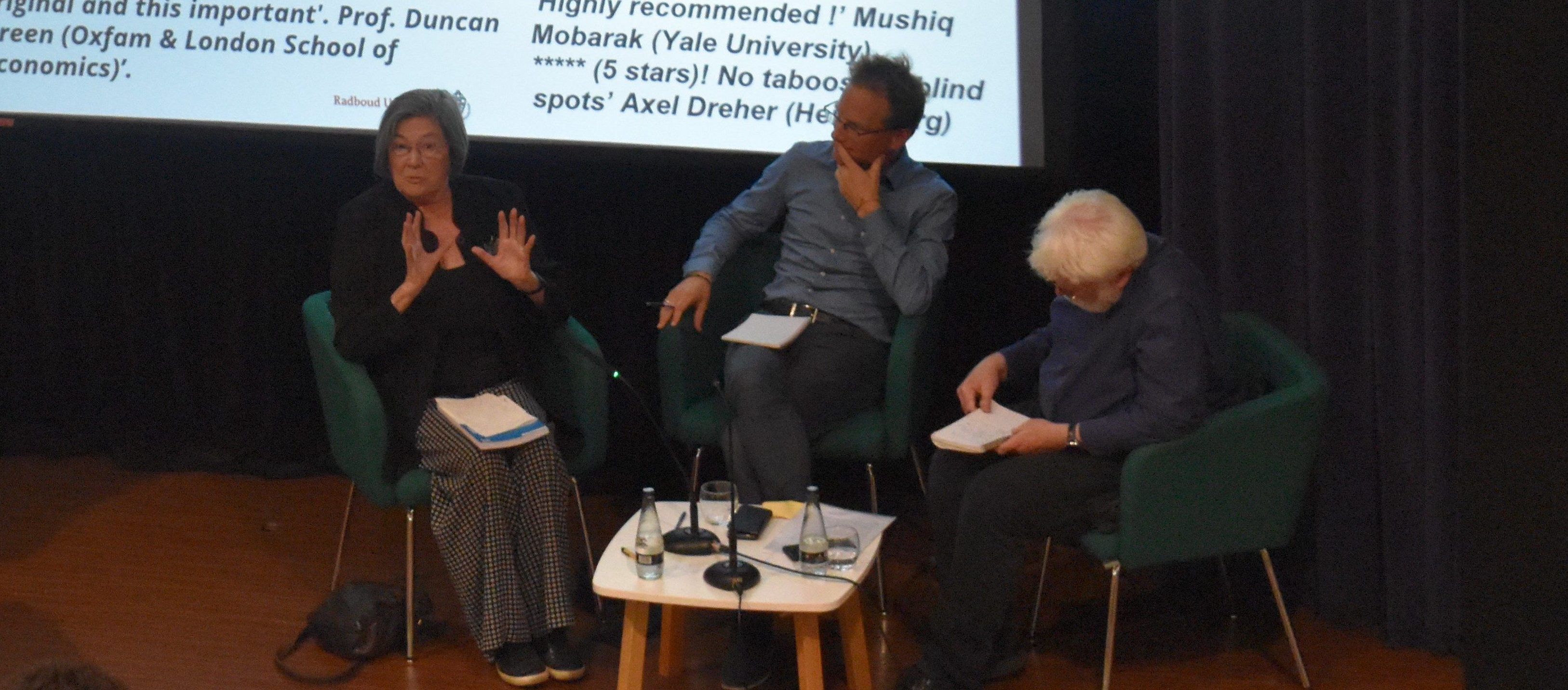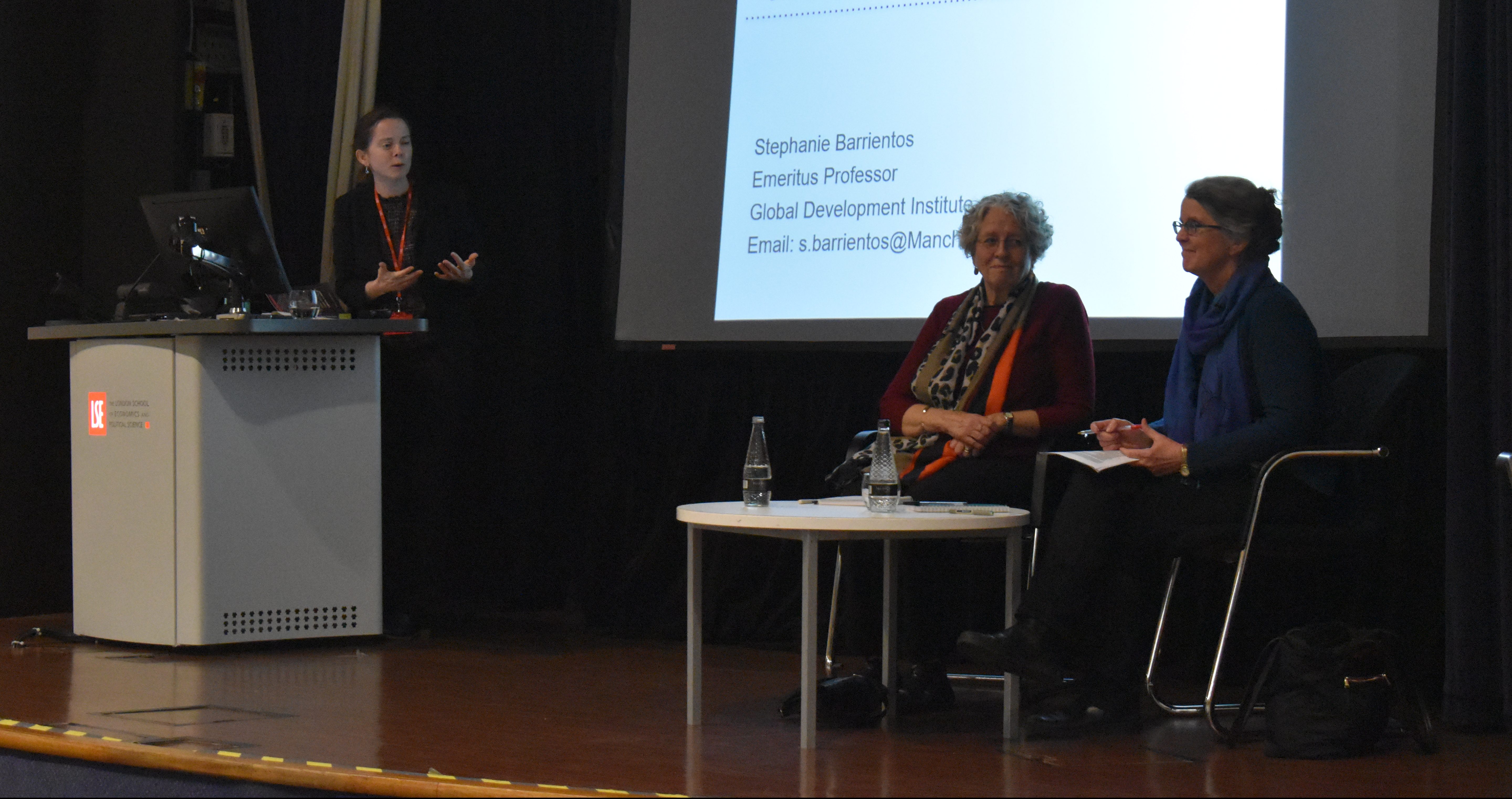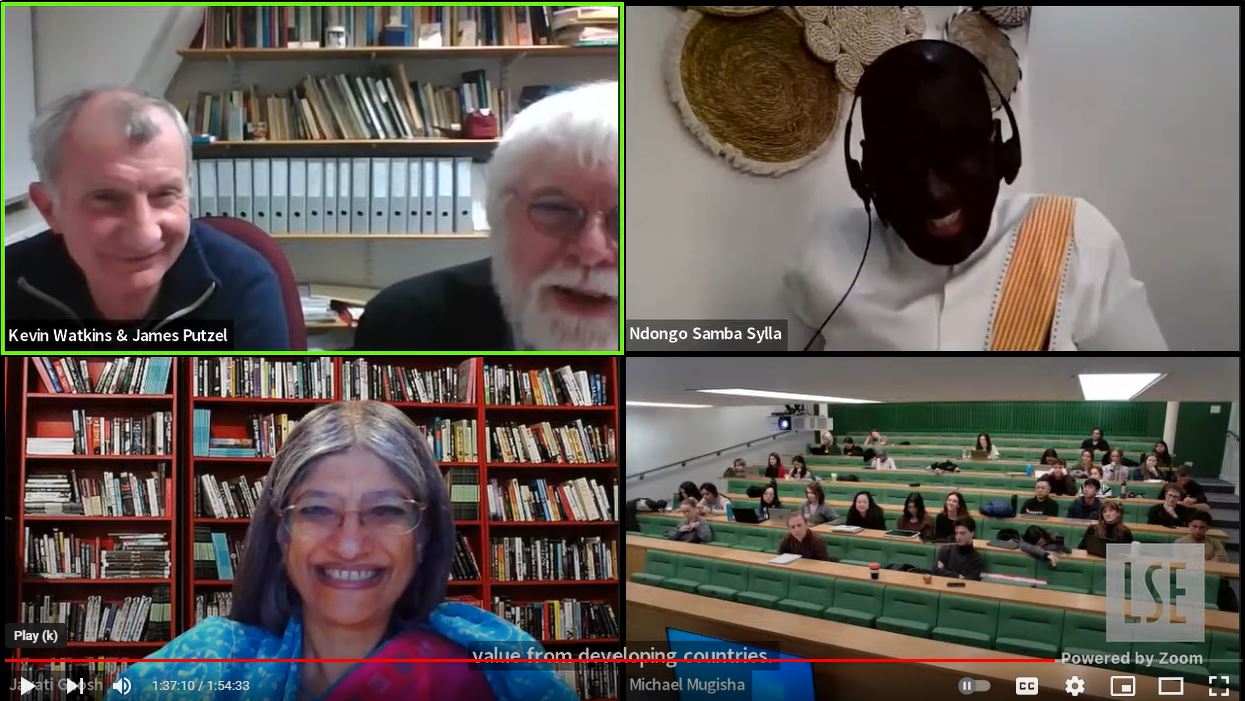On Friday 16 February, Ronald Herring and Aniket Aga joined us for a discussion on ‘What the Gene-Editing Revolution Means For Rural Welfare, Global Futures and Social Justice’ as part of the Cutting Edge Issues in Development Lecture Series for 2023/24. Chaired by Professor James Putzel. Read what MSc student Angela Salmeron Contreras took away from the lecture below.
You can watch the lecture back on YouTube or listen to the podcast.
In our rapidly changing world, characterized by threats like climate change and food insecurity that exacerbate social injustices, the debate surrounding the use of gene-editing arises amidst uncertainty and apprehension. This uncertainty extends to whether farmers and scientists can collaborate effectively and whether gene-editing can break free from the pricing monopolies and control exerted by corporations or states, attempting to avoid the fate experienced by GMOs. How can we address the tension between scientific advancements promoting CRISPR innovation and the concerns raised by ecologists who are hesitant to embrace these innovations? How does populism and state control come into play in the debate? How can science be implemented in such a politized world?
These inquiries were the focus of discussion during the most recent Cutting-Edge lecture held last Friday, February 16th, where Professor Ron Herring and Aniket Aga engaged in dialogue. The aim of the discussion was to reflect on the potential benefits and barriers of using science and technology to ensure human welfare and food security in a changing climate that affects overall rural communities.
To achieve these goals, collaboration between scientists and development practitioners seems to be crucial. It is in this context, where Professor Aniket Aga was claiming the need of changing the paradigm and give development practitioners the chance to start the debate to ask ourselves the following question: What are our developmental needs and then prioritizing which technology can most reasonably and in a most cost-effective manner meet those needs? The question he raised was: How can gene-editing address developmental needs and aspirations, if at all? Instead of asking, what developmental needs can do for gene-editing. According to him, initiating discussions from the developmental perspective necessitates engaging in debates and involving various stakeholders across the spectrum of inequality present in public life. In addressing this issue, he advocates for prioritizing democratization. While this approach risks being misconstrued as a complete dismissal of scientific knowledge, he emphasizes a different approach: democratizing the discourse surrounding the direction of science and technology.
In the realm of agroecology, Professor Aniket Aga emphasized that research indicates gene-editing may not be necessary, proposing instead a reliance on biodiversity. He highlighted agroecology’s focus on empowering farmers by retaining control over seeds and implementing highly productive polyculture systems. When addressing global food security and fostering inclusive discourse, he advocated for considering systemic solutions to systemic issues. While acknowledging the potential usefulness of gene-editing in certain contexts, he attributed its perceived necessity to a lack of investment in systemic approaches that prioritize collaboration with farmers over technology-driven solutions.
Alternatively, Professor Ron Herring contends that populism significantly influences our perspectives on the gene-editing discourse. He suggests that while biology operates universally, state-sponsored science remains inherently national. Within this framework, he argues that science and technology face challenges in the so-called “Post-Truth” era, characterized by a global narrative that prioritizes individually crafted national interests over objective truth or scientific consensus. More often than not, authorities, make hard statements about topics beyond their expertise, exposing the vulnerability of science in political contexts. Ultimately, individuals must personally weigh the risks and benefits of utilizing such knowledge.
The speaker contends that progress in developing new crops and addressing emerging diseases is impeded by the politicization of science, inadequacies in state-sponsored research, and limitations in current scientific methodologies. Moreover, he believes that discussing science necessitates a comprehensive understanding of it. Nonetheless, I question whether local farmers would grasp the advantages and limitations of gene-editing. I presume their primary concern would be the profitability of their crops, thus their well-being. While gene-editing could potentially enhance productivity and resilience to climate stresses like droughts for certain crops, the consumer perception of food resulting from these technologies remains uncertain.
Overall, this piece underscores the complexity of the gene-editing debate and emphasizes the need for holistic approaches that consider scientific, social, economic, and ethical dimensions. The lessons learned in this lecture were:
- The importance of considering diverse perspectives: Understanding both sides of the debate surrounding gene-editing allows individuals to make informed decisions and navigate complex issues more effectively.
- The significance of collaboration: Collaboration between scientists, development practitioners, farmers, and other stakeholders is crucial in addressing challenges related to food security, climate change, and social justice.
- The need for democratizing scientific discourse: Encouraging inclusive discussions and involving various stakeholders can help democratize the direction of science and technology, ensuring that it addresses the needs of all communities and promotes equity.
- The impact of political influences on science: The politicization of science can hinder progress and innovation, highlighting the importance of safeguarding scientific integrity and promoting evidence-based decision-making.
- The role of education and awareness: Educating both farmers and consumers about the benefits and potential risks of gene-editing technologies is essential in fostering informed decision-making and shaping public perceptions.
That being said, I contend that grasping the apprehensions of agroecologists is vital as we navigate an evolving world where gene-editing holds promise for addressing food security. However, this potential must be realized while respecting farmers’ autonomy and by prioritizing education for both farmers and consumers. Such education should cover the techniques, benefits, and potential risks of gene-editing technologies to enable informed decision-making and shape public opinions.
The views expressed in this post are those of the author and in no way reflect those of the International Development LSE blog or the London School of Economics and Political Science.





